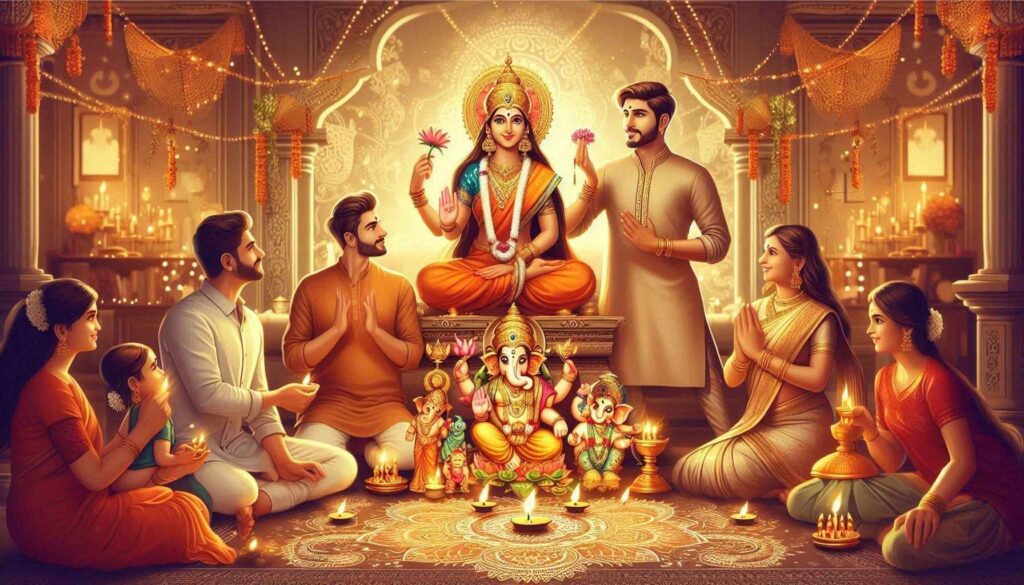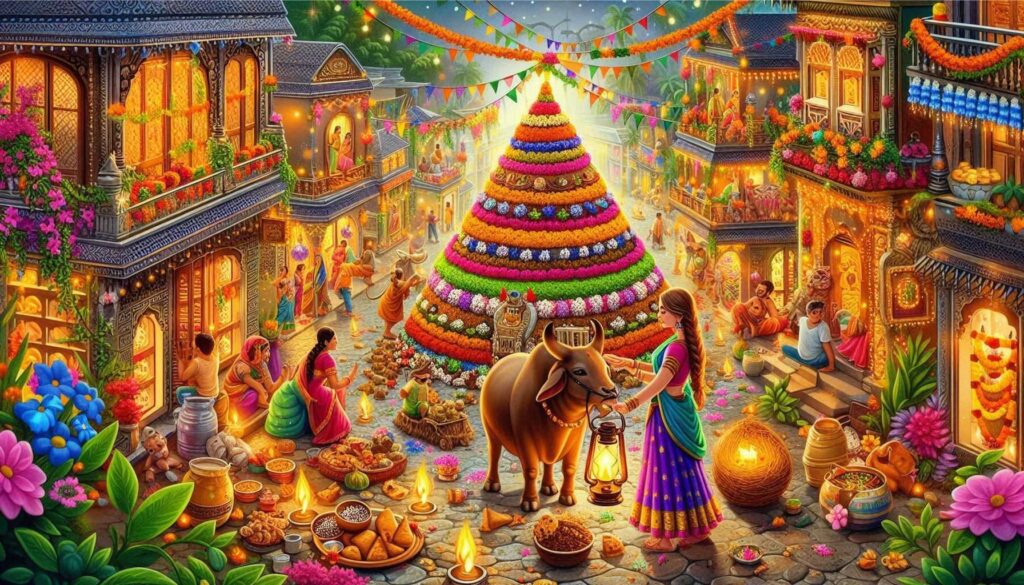Festivals in Maharashtra in November 2024
Maharashtra, one of India’s culturally rich and vibrant states, hosts numerous festivals throughout the year. November is particularly significant due to a variety of festivals that celebrate religious, spiritual, and cultural aspects of life. The month marks important Hindu festivals like Diwali Amavasya (Lakshmi Pujan) and Bali Pratipada, along with the observance of Guru Nanak Jayanti, celebrating the birth of the founder of Sikhism.
This article explores the festivals celebrated in Maharashtra in November 2024, shedding light on the customs, rituals, and deep-rooted traditions that make these occasions special. We’ll also dive into how these festivals reflect the diverse religious and cultural fabric of Maharashtra, home to a wide range of communities and traditions.
1. Diwali Amavasya (Lakshmi Pujan) – November 1, 2024 (Friday)

Significance: Diwali, the festival of lights, is one of the most widely celebrated festivals in Maharashtra and across India. Diwali Amavasya, or Lakshmi Pujan, is a significant day dedicated to worshipping Goddess Lakshmi, the deity of wealth and prosperity. The festival marks the victory of light over darkness, and it is believed that worshipping Lakshmi on this day brings fortune, success, and happiness to homes and businesses.
Read More About Hindu Philosophy
Rituals:

- Cleaning and Decoration: Homes and workplaces are thoroughly cleaned and decorated with vibrant rangolis, oil lamps (diyas), and lights to welcome Goddess Lakshmi.
- Lakshmi Pujan: Families gather in the evening to perform Lakshmi Puja. Offerings include sweets, fruits, and coins, and prayers are recited to invite the blessings of the goddess. The idols or images of Lakshmi and Lord Ganesha are placed on a clean, decorated platform, where the family conducts the rituals together.
- Lighting Lamps: After the puja, people light oil lamps around their homes and leave the doors and windows open to allow the goddess to enter.
- Bursting Firecrackers: Firecrackers are lit to celebrate the occasion, symbolizing the triumph of good over evil.
Cultural Importance: In Maharashtra, Lakshmi Pujan is not only a religious event but also a social occasion where families and communities come together to celebrate. Businesses across the state perform special pujas, as it is believed to be an auspicious day for starting new ventures or making purchases, especially of gold and other valuables.
2. Diwali (Bali Pratipada) – November 2, 2024 (Saturday)

Significance: Bali Pratipada, also known as Govardhan Puja or Annakut, is celebrated on the fourth day of Diwali. In Maharashtra, this day is particularly special because it commemorates the victory of King Bali, a generous demon king, who was sent to the netherworld by Lord Vishnu in his Vamana avatar. Maharashtrians honor Bali’s reign, symbolizing the importance of humility and devotion.
Rituals:

- Govardhan Puja: Many families worship the Govardhan mountain, an act associated with Lord Krishna’s protection of the people of Vrindavan. A large meal, or Annakut, is prepared, symbolizing abundance and gratitude for nature’s bounty.
- Bali Puja: In Maharashtra, Bali Pratipada is also marked by rituals that honor King Bali. Traditional offerings are made, and farmers often worship their cattle and agricultural tools, showing gratitude for a successful harvest.
- Exchanging Gifts: Another key aspect of this day is the exchange of gifts among family members and friends, symbolizing love and unity.
Cultural Importance: Bali Pratipada holds a deep agricultural significance in Maharashtra. It marks the beginning of the harvest season and is a time when people show their gratitude for nature’s generosity. For the farming communities in the state, this festival is as much about thanking the gods as it is about celebrating their hard work and the land they till.
3. Guru Nanak Jayanti – November 15, 2024 (Friday)

Significance: Guru Nanak Jayanti, also known as Gurpurab, celebrates the birth anniversary of Guru Nanak Dev Ji, the founder of Sikhism and the first of the ten Sikh Gurus. This festival holds immense importance for the Sikh community in Maharashtra and is observed with devotion and reverence.
Rituals:

- Prabhat Pheris: Early morning processions, known as Prabhat Pheris, are held where devotees sing hymns and verses from the Guru Granth Sahib, the holy scripture of Sikhism. These processions create a spiritual atmosphere in the community.
- Langar (Community Meal): One of the most significant aspects of Guru Nanak Jayanti is the Langar, a free community meal served to all, regardless of caste, creed, or religion. The concept of Langar, initiated by Guru Nanak, reflects the core Sikh values of equality and service.
- Gurudwara Celebrations: Special prayers and kirtans (devotional songs) are held in Gurudwaras across Maharashtra, where devotees gather to offer their respects to the Guru. The recitation of the Guru Granth Sahib is a key ritual on this day.
Cultural Importance: Maharashtra is home to a significant Sikh community, and Guru Nanak Jayanti is a time when the values of peace, compassion, and unity are highlighted. In cities like Mumbai, Pune, and Nagpur, the festival is marked by large processions, kirtans, and the distribution of food to the needy, embodying the spirit of seva (selfless service) taught by Guru Nanak Dev Ji.
The Cultural and Social Impact of November Festivals in Maharashtra
The festivals celebrated in Maharashtra during November 2024 reflect the diversity and cultural richness of the state. Diwali, with its emphasis on light, prosperity, and familial bonds, brings people together across religious and social boundaries. The agricultural significance of Bali Pratipada highlights the connection between nature and human life, especially for the farming communities in Maharashtra.
Guru Nanak Jayanti, on the other hand, adds a layer of spiritual and social inclusivity, reminding people of the values of equality, humility, and compassion. The Sikh community’s celebrations of this festival in Maharashtra not only honor the birth of their revered Guru but also emphasize the message of universal brotherhood, which is relevant across all communities.

